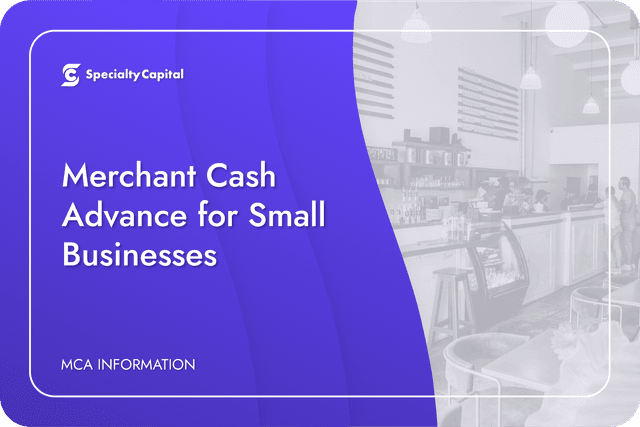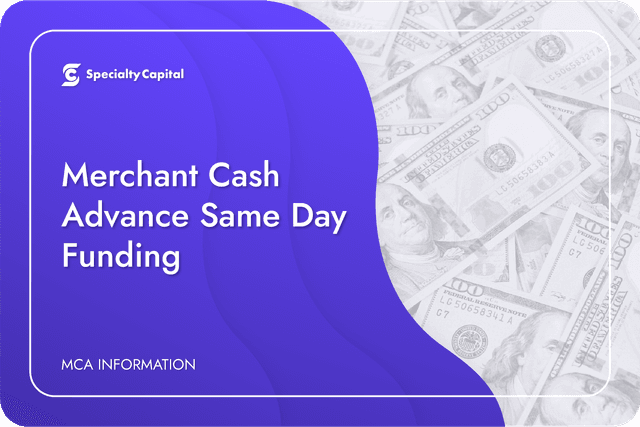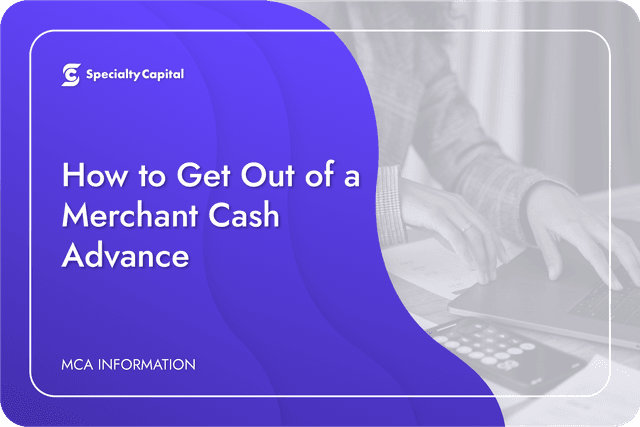If you need financing for your small business, a merchant cash advance can be an excellent option. However, there are some qualifications that your business will need to meet to get approved for this unique type of financing. While it can be more lenient compared to a traditional business loan in some ways, there are also some criteria that you’ll need to meet to secure your capital.
When looking at the qualifications and requirements for a merchant cash advance, or MCA – it’s important to note that they will vary from funder to funder. Some funders may be more lenient than others, so weighing your options between funders can be helpful. These guidelines are general factors that many funders will use to analyze your businesses to see if you are a good fit.
As with any type of business financing, proof of identification is a key part of your application. Funders need to know that you are a legitimate, real borrower who can make payments.
In most cases, funders will require a valid government-issued ID including a driver’s license or passport.
Some funders may also complete a background check to further verify your identity and your personal history.
Another key aspect of your application is your business history. While the exact details of the requirements will vary, most will require tax returns for one to two years to verify your business’s income.
Not only will this verify your time in business, but it will also aid in verifying your business’s income. Be sure to maintain accurate tax records to increase your odds of approval and secure business funding when you need it.
Because a merchant cash advance uses your card sales as collateral for your financing, you’ll need to have some steady card sales and revenue in order to be qualified for your financing. The amount of revenue you’ll need will vary from funder to funder, but in most cases, you’ll need at least $100,000 in annual revenue to be considered. Some funders may require more, but this should give you a general idea of what might be acceptable.
When analyzing your income, it’s important to have somewhat stable revenue month over month. While it’s acceptable to have some months with higher or lower revenue, funders want to see that there is some stability in your business.
Remember, this is a baseline amount and the higher your income is, the more you can be approved for.
MCAs offer more flexibility when it comes to credit compared to traditional bank loans or other funding methods. In most cases, you’ll need a credit score of at least 550 to be considered for financing. However, a higher credit score can help reduce the cost of your financing and lower your factor rate.
Like every factor, different funders may have different credit score requirements. If your business suffers from bad credit, you may still qualify if your business has a history of strong revenue.
If possible, try to maintain a healthy credit score before applying for a merchant cash advance to help your business get the most affordable financing possible.
To secure your financing, in addition to your business history, most merchant cash advance companies will require at least three months of your card processing statements. This will be used to verify your card sales income and ultimately the amount of funding you may qualify for.
If your business is seasonal, you’ll likely be required to submit card processing statements for at least one year of your business instead of three months. This will help your funder better analyze the risk of your business.
Similar to card processing statements, MCA funders will also require bank statements for your business to further verify your income and ensure you’re running a sound operation. In most cases, funders will be on the lookout for cash flow stability and discipline with your finances so you don’t have exorbitant costs.
If you routinely have negative balances or NSF fees – these can be red flags for funders. While it doesn’t necessarily mean you won’t qualify for a merchant cash advance, it can mean that your factor rate will increase to balance the perceived risk of your financing.
If possible, aim to be diligent with your business finances before applying for a merchant cash advance. Maintain a positive balance, keep your expenses in line, and eliminate as many fees as you can to increase your odds of approval and better the terms of your agreement.
So, how much capital can you secure with an MCA? Ultimately, it will depend on your credit and debit card sales, but it’s possible to receive up to 120% of your monthly cash flow.
For example, if your business does $100,000 per month in debit and credit card sales, you could be approved for as much as $120,000 when you apply for a merchant cash advance.
Some funders may only qualify your business for 80% of your monthly card sales. Using the same example as above, your business would qualify for $80,000 of financing.
If you need cash to run your enterprise, a merchant cash advance can be a great option for your business to get funding quickly and easily. Unlike traditional small business loans, the amount of cash you can secure is more dependent on your revenue and card sales rather than your business credit score and history.
When it comes to small business financing, one of the biggest factors is the cost. The cost of a merchant cash advance can vary widely depending on a multitude of factors. For example, your business history, credit score, and card sales will all play a vital role in determining your factor rate, or the cost of your financing.
Because merchant cash advances are not traditional business loans, they can sometimes be more complex in determining the total cost of financing.
Outside of the factor rate, there may be other administration fees that will be outlined once you qualify for a merchant cash advance. Always be sure to understand the rates and terms of your agreement before making any financial commitment.
Some merchant cash advance funders like Specialty Capital will offer lucrative prepayment discounts that can make your financing much more affordable. Be sure to check around with different funders to get the best rates and terms possible.
If your business needs funding, but you don’t qualify for a merchant cash advance, there are several other options that you might consider. Here are a few options worth exploring:
Choosing a merchant cash advance offers many benefits over other types of funding, so it’s important to analyze the pros and cons of each type of financing to get a better idea of the costs and benefits of each.
In general, if you need access to cash to help your business grow, a merchant cash advance can be a great option if you’re looking for a lenient application process and your business has strong monthly card sales. Get in touch with Specialty Capital today to get started!
If you need a lump sum of cash to grow your business, a merchant cash advance could be a great avenue worth exploring.
One key benefit of a merchant cash advance is the lenient requirements and qualifications. Where traditional small business loans and financing options will require more collateral, higher credit scores, and more business history – an MCA uses the cash flow your business generates to ease the application process and restrictions so you can get approved for funding.
The main downside to an MCA is the cost and terms of the financing. In some cases, an MCA can be more costly than other traditional financing options, but it’s not always the case. For this reason, it’s wise to shop around and compare options before committing.
With Specialty Capital, we’re able to offer industry-leading prepayment discounts that other funders cannot match. This can drastically reduce the overall cost of your financing and make it more attractive than other types of funding. Get in touch with us today to explore all of your options!

Merchant Cash Advance for Small Businesses (Benefits & Requirements)
When small businesses need financing, they have a range of financing options to choose from. But many opt for a merchant cash advance (MCA) because...

Merchant Cash Advance Same Day Funding
A merchant cash advance (MCA) is a great financing option when you need same-day funding, but there are certain requirements, restrictions, and dra...

How to Get out of a Merchant Cash Advance
A merchant cash advance (MCA) can be great when you need short-term financing that’s easy to secure, but what happens if you want to get out of an ...